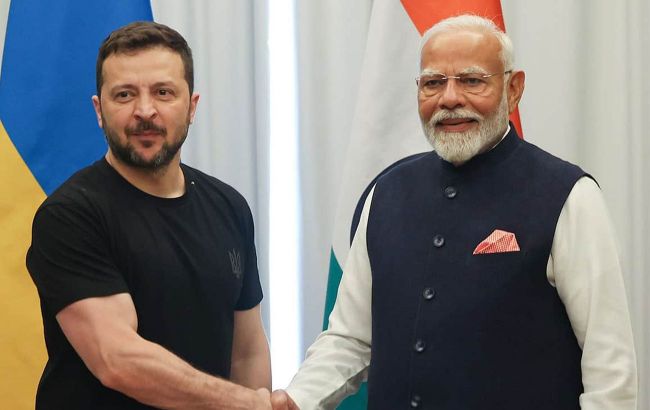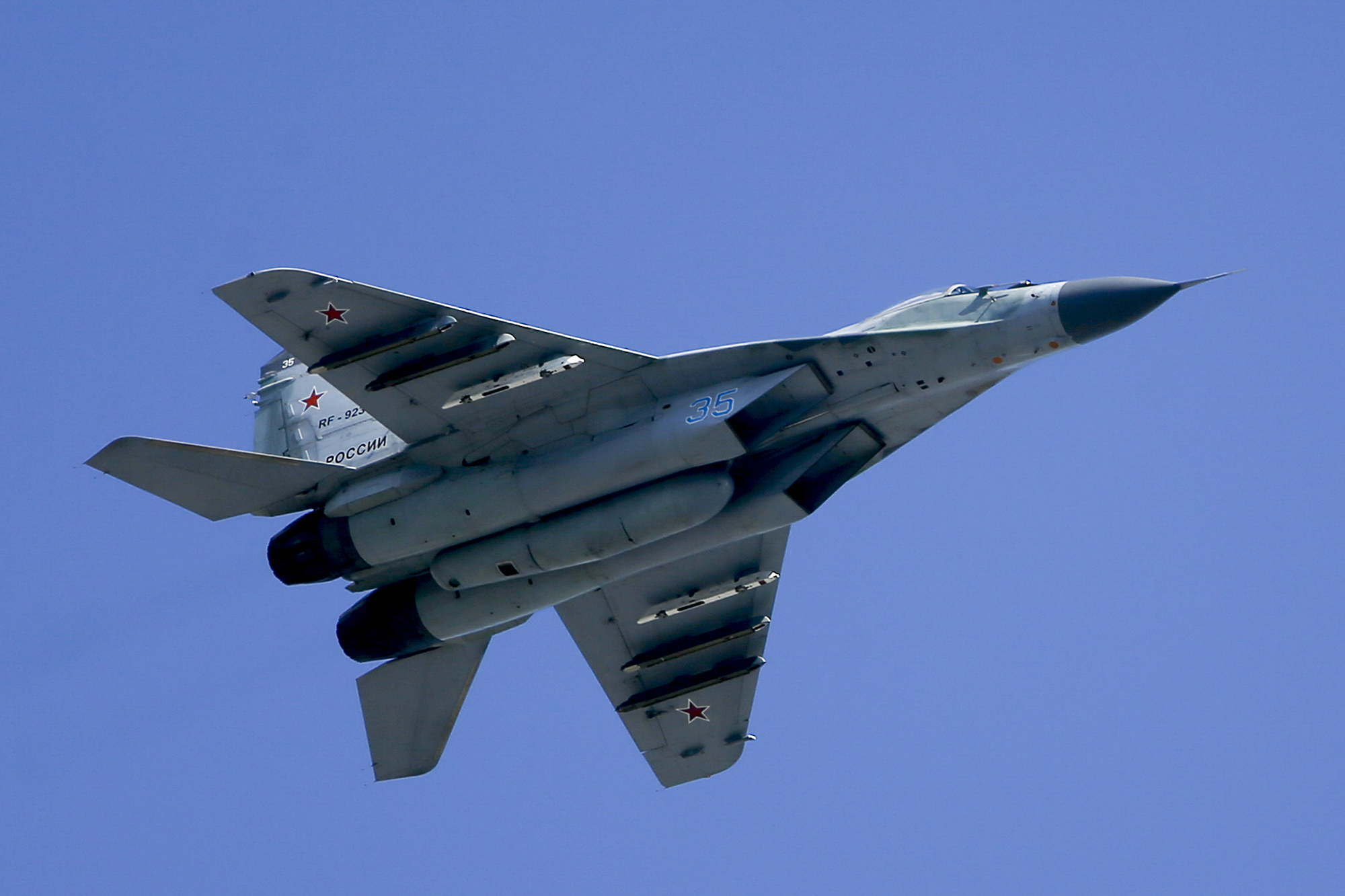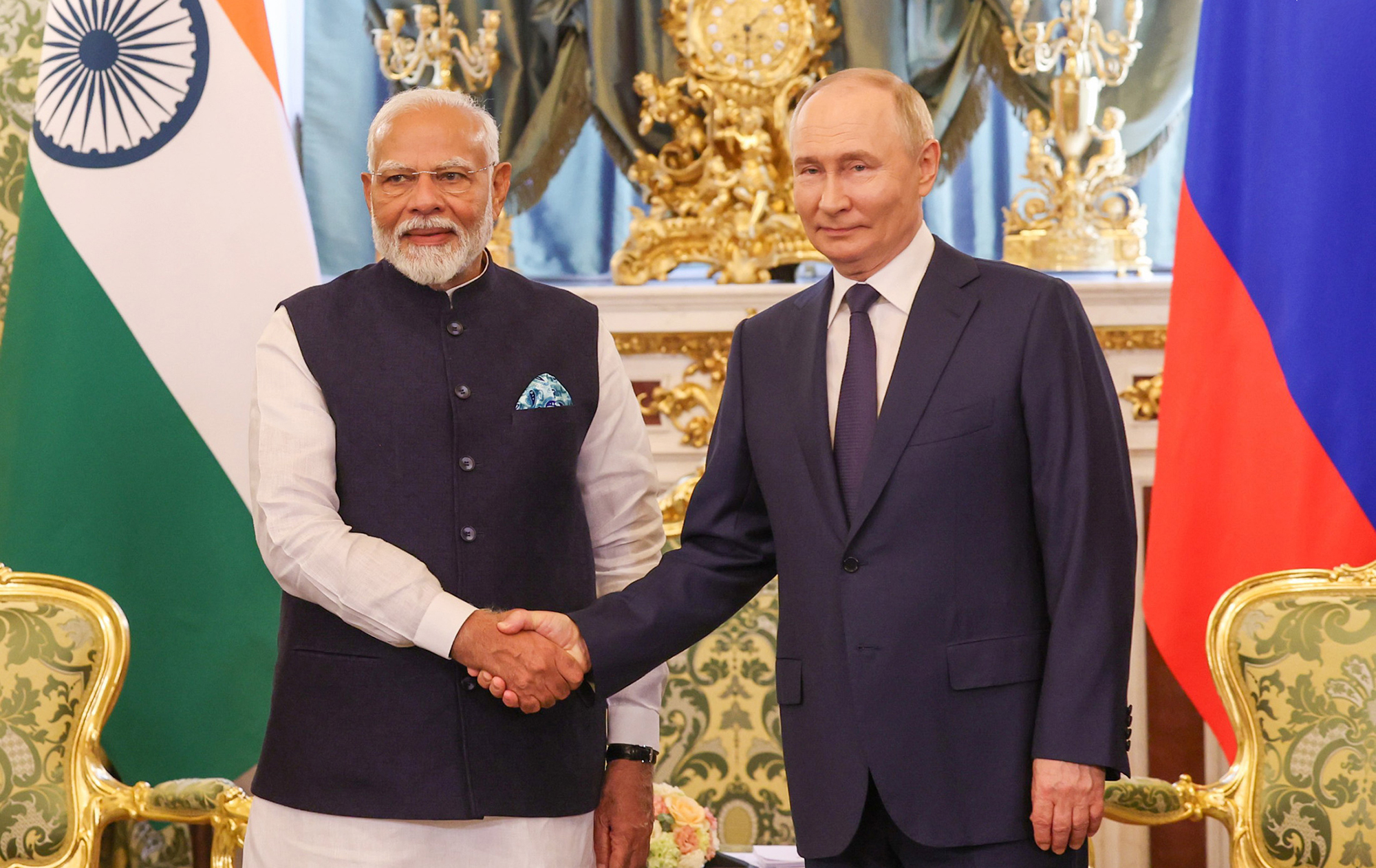Why India's Modi arrives in Ukraine, and how his visit could influence course of the war
 Volodymyr Zelenskyy and Narendra Modi (Photo: facebook.com/narendramodi)
Volodymyr Zelenskyy and Narendra Modi (Photo: facebook.com/narendramodi)
On August 23, Indian Prime Minister Narendra Modi arrived in Kyiv. This visit is already significant as it is the first time since Ukraine's independence. But will it truly be groundbreaking, and will Modi play a role as a mediator in negotiations to end the Russia-Ukraine war? Read more in the article by RBC-Ukraine.
Contents
- Context: India between the West, Russia, and China
- Public gestures in the context of war
- Bilateral agenda
Recent meetings between Ukrainian President Volodymyr Zelenskyy and Indian Prime Minister Narendra Modi have been aligned with significant dates or events for Ukraine.
On June 14, they met in Italy, just before the Peace Summit, although India was ultimately represented at a lower level by Pavan Kapoor, the Secretary (West) of the Ministry of External Affairs of the Republic of India. This time, the visit takes place ahead of Ukraine's Independence Day.
Modi's trip to Kyiv is notable because no Indian leaders have visited Ukraine since it gained independence. However, this visit should be viewed through the lens of Indian policy, which has a different agenda and worldview compared to what is familiar in Ukraine.
Context: India between the West, Russia, and China
In the past, Ukrainian diplomacy made several mistakes regarding India. For example, the 1996 contract for supplying 320 Ukrainian tanks to Pakistan, a country with which India has fought four wars since its independence, is one such mistake. Additionally, South Asia has not been a priority for Ukraine, despite several potential areas of cooperation.
"For Modi, Ukraine is a natural partner. However, the relationship between Ukraine and India over the past decade has been so strained that it will take time to resolve," says diplomat Roman Bezsmertnyi.
Moreover, pro-Russian sentiments remain strong in India, dating back to Soviet times. Another important factor is India's reliance on Russian arms supplies. According to SIPRI, Russia supplied 65% of all weapons purchased by India over the past two decades, including aircraft, helicopters, submarines, and warships.
However, according to Western media reports, India is moving to reduce its military dependence on Russia. First, the war in Ukraine has shown the low quality of many types of Russian equipment in real combat conditions. Second, there is uncertainty about the supply of Russian spare parts, which are now critically needed by Russia itself.

MiG-29, which Russia sold to India (photo: Getty Images)
The situation is also changing due to the overall intensification of Ukraine's relations with the Global South.
At the end of March, Ukrainian Foreign Minister Dmytro Kuleba visited India, marking the first such trip since 2017. A few months later, in June, a meeting between the leaders of Ukraine and India took place, notably on the sidelines of the G7 summit, to which both Zelenskyy and Modi were invited.
This is not coincidental, as G7 countries view India as an alternative to China's growing influence. Investments and technologies are being directed to India, which could become part of a transport corridor to Europe, serving as an alternative to China's Belt and Road Initiative.
India is also gradually reducing its dependence on Russian arms. Modi's visit to the United States in June 2023 was significant in this regard, with agreements reached on the joint production of fighter jet engines, the repair of American warships, and the purchase of drones.
However, India is not ready to completely sever ties with Russia. One reason is the growing threat from China.
"One reason for India's Russia-leaning neutrality is to prevent an even closer China-Russia alliance. India hopes that by maintaining its good relations with Russia it will be able to ensure that the China-Russia alliance does not deepen," says Manoj Joshi, a Distinguished Fellow at the Observer Research Foundation, an Indian think tank.
Thus, the factor of India's rapprochement with the West plays a significant role and was certainly considered in preparing for Modi's visit to Ukraine.
"In India, the US is not liked, but China is disliked even more. This, among other things, determines India's policies and interests. And it is through the prism of fear of China and the strengthening of China-Russia ties that I think India will gradually drift toward Ukraine and the West," says Ivan Us, Chief Consultant at the Center for Foreign Policy Studies of the National Institute for Strategic Studies.
Public gestures in the context of war
The reputational aspect of Modi's trip is evident and has probably attracted the most attention from the global press.
It should be noted that during Modi's visit to Moscow, Russia launched a missile strike on the Okhmatdyt children hospital, a maternity ward, and other civilian facilities in Kyiv. A total of 37 people were killed, and 170 others were injured.
Commenting on the situation, the Indian Prime Minister emphasized that "when innocent children are killed, the heart bleeds, and that pain is very terrifying."
Despite these words from the Indian Prime Minister, the President of Ukraine stated that it was "disappointing to see the leader of the world's largest democracy embracing the world's bloodiest criminal in Moscow on such a day."
India took the criticism seriously. The Ministry of Foreign Affairs even summoned the Ukrainian ambassador and postponed a joint working group meeting on cultural issues with Ukraine.
However, the criticism did not only come from Ukraine, so it needs to be addressed. Such connotations of Modi's visit are also present in India itself.
"The purpose of this visit is for the Prime Minister to show India's even-handed approach to the war. India has called for peace through dialogue and negotiations and it sees this visit as part of promoting that process. The visit comes soon after the PM's visit to Russia which was criticized in many Western countries," Manoj Joshi said to RBC-Ukraine.
According to him, India refused to condemn Russia's war in Ukraine but expressed concern about the deaths and destruction caused by the war in Ukraine.
"By this visit, India is showing its increasing concern at the terrible price that Ukraine is paying for the war," the Indian expert emphasizes.
At the same time, one should not count on active mediation by India, at least not yet. However, according to RBC-Ukraine's sources in Ukraine's political leadership, India, along with several other world powers, is generally interested in participating in the resolution of the war between Russia and Ukraine.
 Narendra Modi and Vladimir Putin (photo: Getty Images)
Narendra Modi and Vladimir Putin (photo: Getty Images)
On the eve of the visit, Bloomberg reported that Modi ruled out the role of mediator in ending Russia's war in Ukraine. However, according to the media, India agreed to convey messages between Vladimir Putin and Volodymyr Zelenskyy.
A vivid demonstration of this approach was the absence of high-ranking Indian officials at the peace summit in Switzerland. India also did not sign the final communiqué.
"In our view, only those options acceptable to both parties can lead to abiding peace," explained Pavan Kapoor, head of the Indian delegation and representative of the Ministry of Foreign Affairs.
India has sent more than ten shipments of humanitarian aid to Ukraine. At the same time, it continues to buy Russian oil - though for rupees, meaning that Russia can only use these funds to purchase Indian goods or keep them in accounts.
"In the countries of the Global South, there are three examples of neutrality regarding Russia's war against Ukraine. This includes China's pro-Russian neutrality, Türkiye's pro-Ukrainian neutrality, and indeed, India's classic neutrality," says Ivan Us.
Bilateral agenda
According to Roman Bezsmertnyi, Modi is coming to Kyiv with a clear set of specific questions. In addition to "war and peace," they may primarily concern India's national security issues, as well as bilateral relations.
Zelenskyy and Modi discussed expanding trade during their previous meeting in June, particularly in the context of the functioning of the Black Sea corridor. India's trade volumes with Ukraine are not very large. In recent years, the turnover has fluctuated between $1-2 billion, but there is potential for growth.
"If Russia supplies a lot of crude oil to India, then Ukraine supplies a lot of sunflower oil, and although it is not as important as crude oil, it is still necessary for India. Therefore, India wants guarantees of supplies to its market," says Ivan Us.
Another direction is the work of Indian companies in Ukraine.
"Let’s not forget that Kryvorizhstal, one of Ukraine's largest metallurgical enterprises, belongs to the company of Indian businessman Lakshmi Mittal. Here too, I think India is interested in investment protection," Us notes.
As reported by the State Property Fund in February, several Indian companies are interested in purchasing enterprises in Ukraine. This includes rental and privatization objects, as well as new directions – the Land Bank and sanctioned property. Other promising areas are related to the reconstruction of Ukraine and cooperation in the defense sphere, possibly with the involvement of the United States.
Thanks to its neutral position on the war, India has managed to gain certain benefits – particularly receiving Russian oil at a discount (even surpassing China in terms of import volumes). But for New Delhi, other factors are also important – from the need to strengthen relations with the West to restraining China, which has also gained significantly from Russia's aggression against Ukraine.
Sources: public statements by Ukrainian and Indian politicians, comments from the chief consultant of the Center for Foreign Policy Studies of the National Institute for Strategic Studies Ivan Us, Ukrainian diplomat Roman Bezsmertnyi, and a Distinguished Fellow at the Observer Research Foundation Manoj Joshi.

